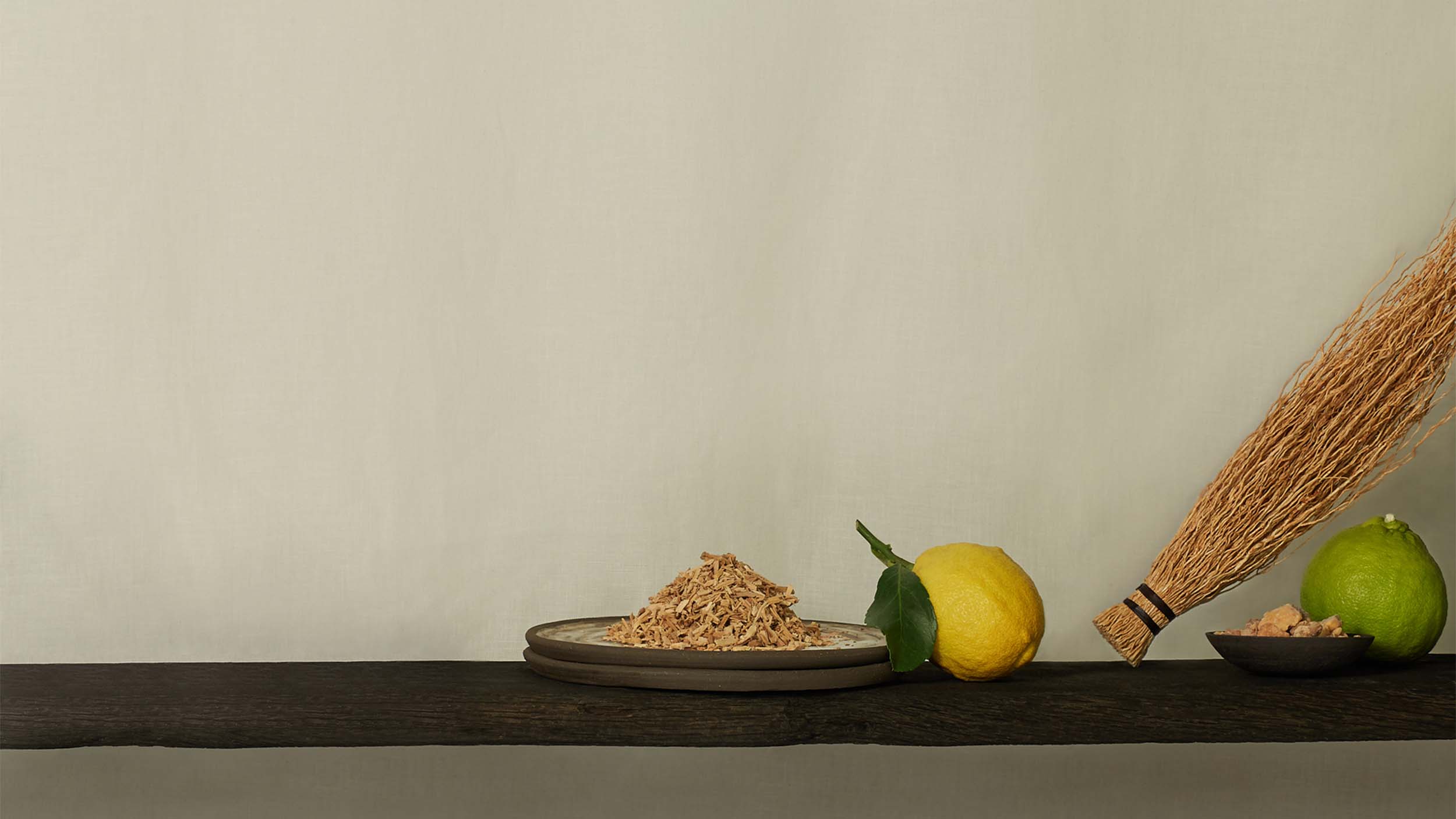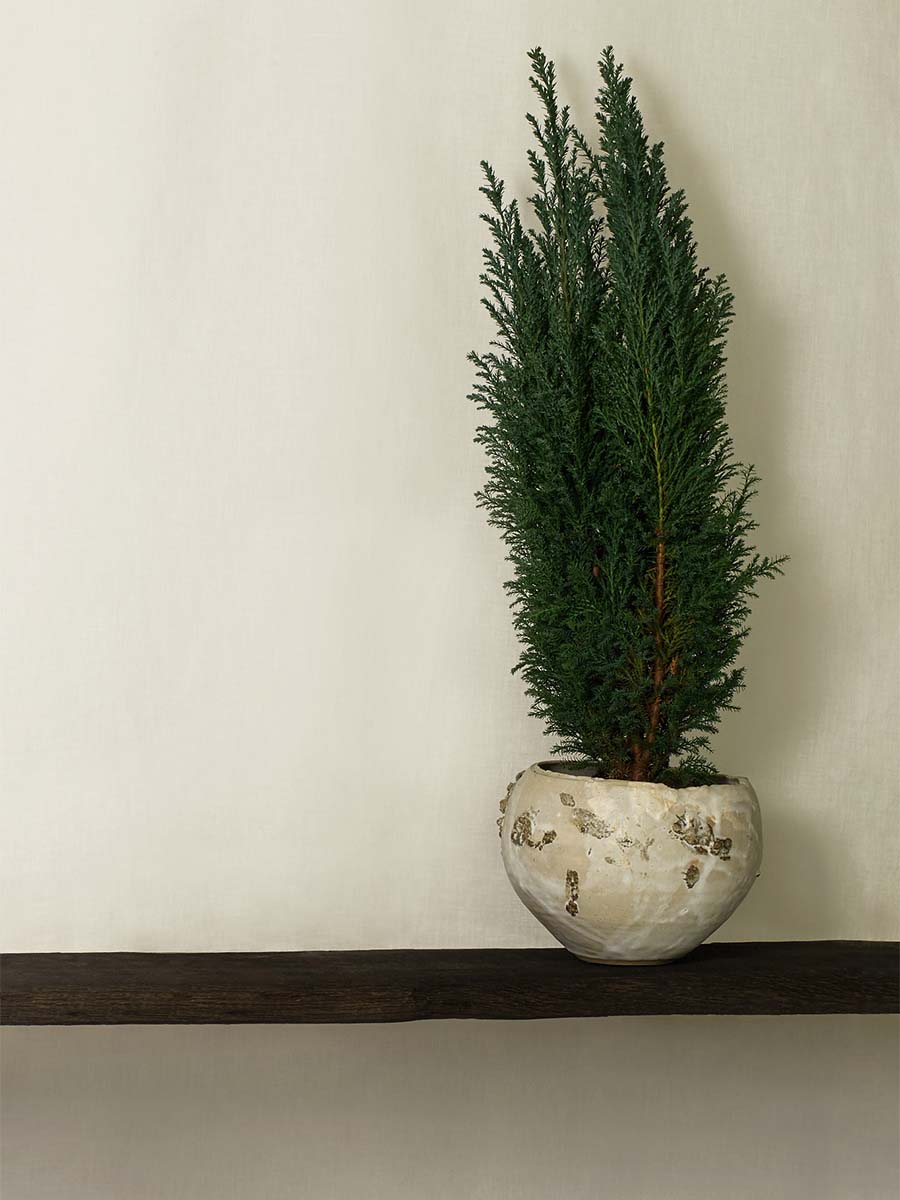
All About Aromatherapy
by AMNIENS
Inhaling deeply can open up a whole new world
A hidden power that we all possess, a key to unlock a sense of wellbeing, a tool to improve our health – what am I? Your sense of smell, at its best when stimulated and celebrated. This underrated fifth sense is linked to the deepest part of our brain. When we inhale essential oils, for example, they go beyond the olfactory system and directly into the limbic system, often referred to as ‘the emotional brain’. It is here that these scents work on a physical and emotional level, and the benefits of aromatherapy begin.


What exactly is aromatherapy?
The use of aromatic materials to improve psychological and physical wellbeing dates back to early civilisations. In the ancient world, 5000 to 10,000 BC, our ancestors would burn aromatic herbs, scented woods and barks to drive out the ‘evil spirits’ from the sick. The description in Latin of this process ‘per fumum’ (through smoke), gives us the word we use today to describe a pleasant scent.
Indian, Chinese, Egyptian, Greek and Roman civilizations were some of the many to leave evidence of their use of aromatics for therapeutic, hygienic and ritualistic purposes. But, it is the richness of the Egyptian botanical pharmacopoeia that stands out. The infamous Queen Cleopatra was well versed in the art of scent, not only for their perfume, but for their medicinal value. However, it is Hippocrates (circa 460-377 BC) the ‘Greek father of medicine’ who popularised the concept we know as holism (treating the entire body as a single organism), which is essential in the practice of aromatherapy.
Fast-forward to 1937 and French chemist René-Maurice Gattefosse (1881-1950) coined the term ‘aromathérapie’ and published his ground-breaking book, Les Huiles Essentielles Hormones Vegetales, which has had a great influence on future developments in this branch of therapy.
How does aromatherapy work?
As we move to more modern-day research, we begin to understand that aromatherapy is made up of a little more than magic, and that smell is unique amongst the senses in terms of its biological mechanism. When inhaled, the scent molecules in essential oils travel from the olfactory nerves directly to the limbic system – which directly connects to the parts of the brain that control heart rate, blood pressure, breathing, memory, stress levels and hormone balance.
The amygdala, where we process emotions, and the hippocampus, where learning and memory formations occur might be of particular interest. This strong connection between smells and emotion explains why when we suffer olfactory disorders, they often lead to feelings of depression; and conversely, how scents can be powerful players in uplifting our mood.
"A HIDDEN POWER THAT WE ALL POSSESS, A KEY TO UNLOCK A SENSE OF WELLBEING, A TOOL TO IMPROVE OUR HEALTH – WHAT AM I?"
How can aromatherapy affect our memories, moods and emotions?
When we inhale a particular scent, it can trigger vivid memory recall of people and places. The study ‘Nature, smells and human wellbeing’, carried out in two British woodlands across four seasons, showed evidence of scent-related benefits on the participants’ physical, cognitive, emotional, spiritual and global wellbeing. Honing in on the specifics of said physical wellbeing, the results included an increased sense of relaxation, comfort and rejuvenation. This in turn reduces stress and lowers cortisol levels, thereby reducing the risk factor in a multitude of diseases linked to high levels of stress. It all spirals back to our wonderful fifth sense.


What are essential oils?
A powerful way to fire up our sense of smell and the associated benefits are essential oils – derived from the likes of roots, flowers, leaves, seeds etc., using steam or applied pressure in order to extract the ‘essence’ of the plant, namely the natural chemicals it contains. The inhalation of the oil is one of the ways it can be absorbed into the body, but it can also be applied directly to the skin, travelling through the epidermis and dermis and reaching the blood vessels, which allow it to circulate to all areas of the body.
Which scents help to uplift and energise?
For a mood-enhancing, energising option citrus is said to cleanse and purify, packed with antioxidants for a revitalising effect – just think of the uplift we experience when a few droplets of juice burst from the orange we are peeling, or even a twist of oil from its fragrant rind. Meanwhile, mint can help to sharpen mental function and awareness, as it is thought to be able to relax bronchial smooth muscles and thereby increase the concentration of oxygen in the brain.

Which scents bring a sense of calm and relaxation?
For more soothing effects, the woody scents that were used at the inception of the art of aromatherapy are the best option. Cypress and sandalwood can help to ease tension and encourage relaxation of muscles and mind. Vetiver with its deep, rich scent helps to promote peaceful sleep, alongside juniper, which can help to combat anxiety. Pink pepper oil is a well-kept secret in the world of aromatherapy, with its soft woody notes and floral undertones, which bring clarity, alertness and improved cognitive ability.
If we can indeed be the architect of our own experience by directing our emotional intelligence (more on that in this fascinating Ted Talk by Lisa Feldman Barrett), if the way we feel can determine how we see the world, then perhaps harnessing the power of aromatherapy is something well worth exploring further.



